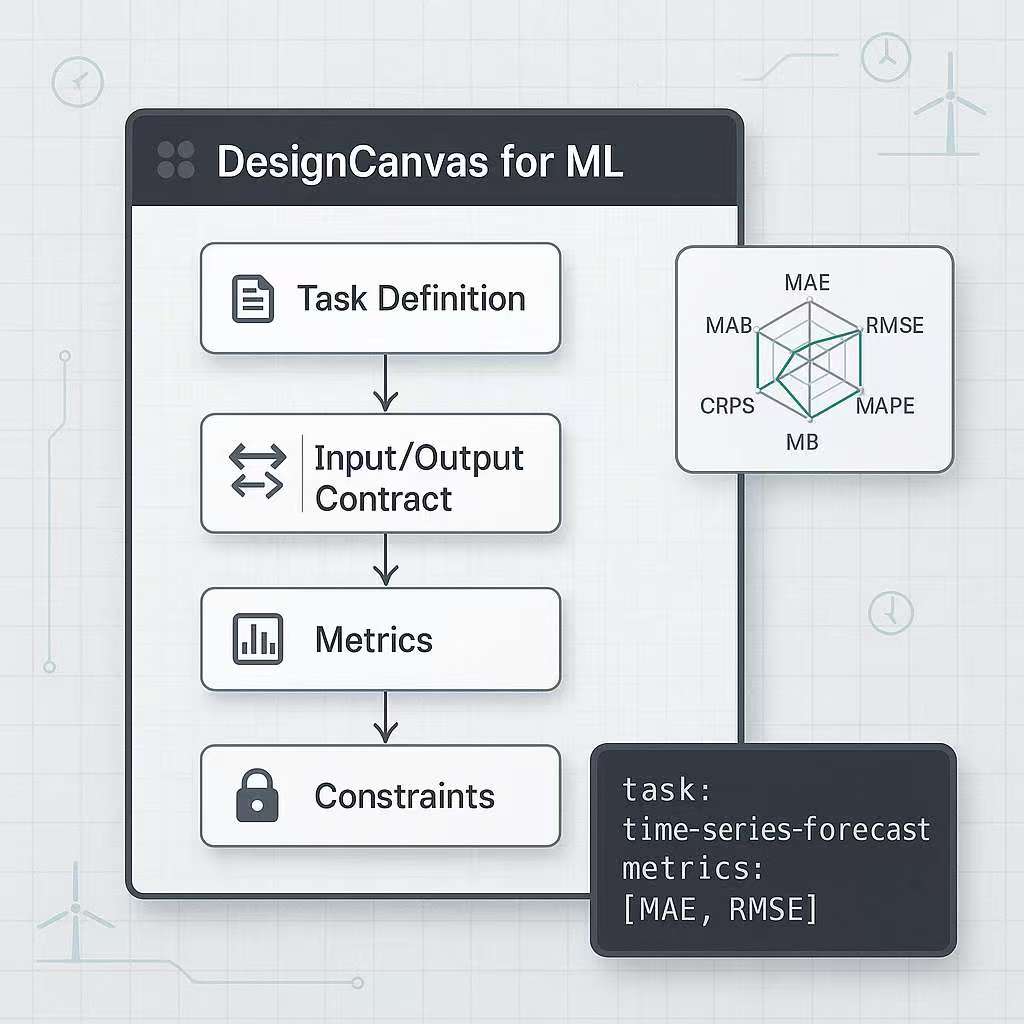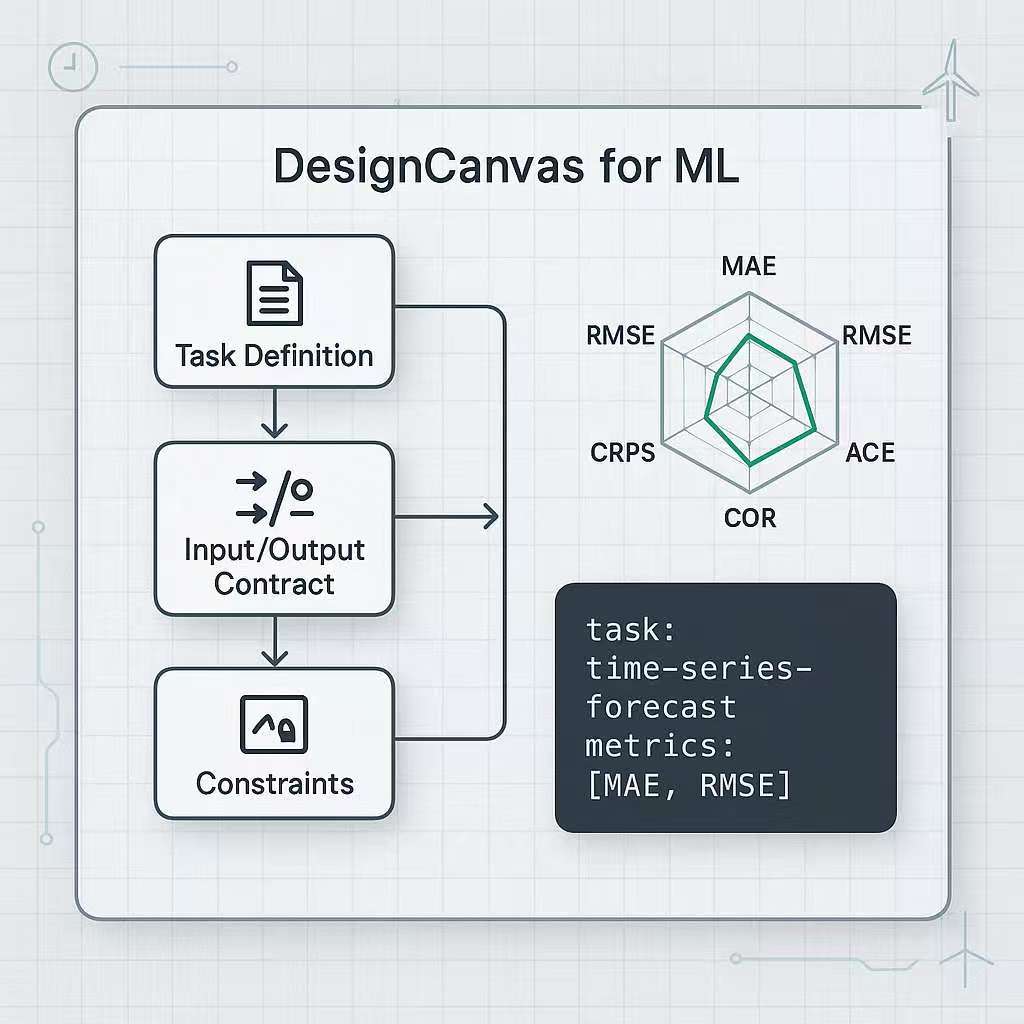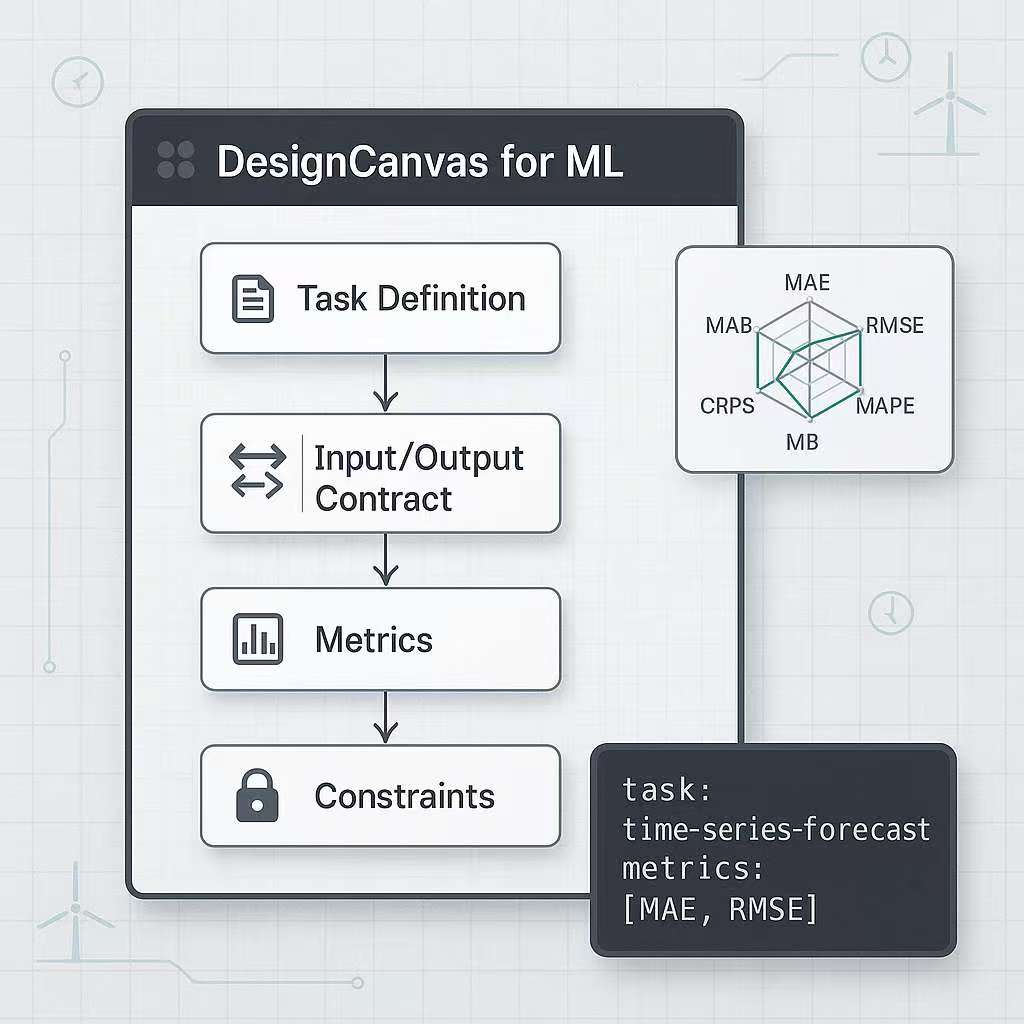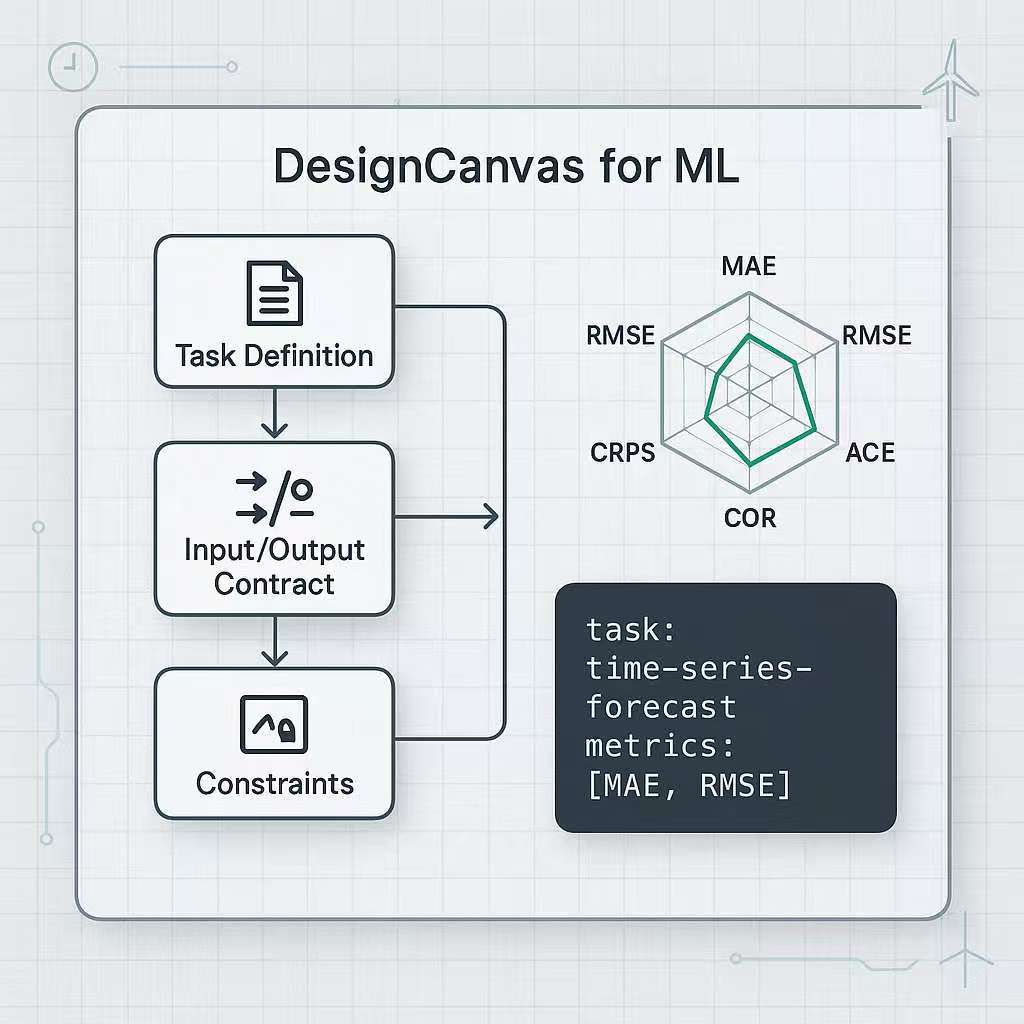DesignCanvas for ML
DesignCanvas for ML
BUNDLE & SAVE
Couldn't load pickup availability
-
Ordered
-
Order Ready
-
Delivered
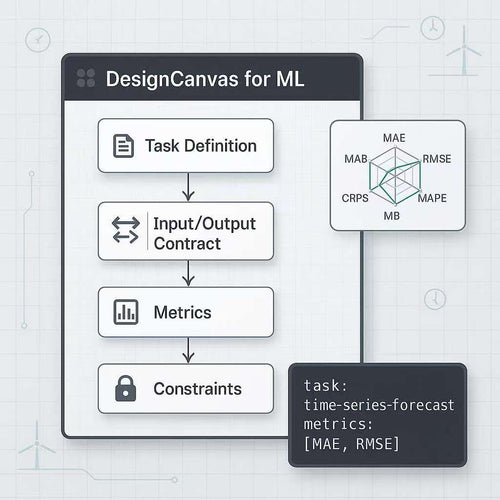
DesignCanvas for ML
Translate business problems into actionable model tasks and evaluation metrics
Product category: Problem definition / Task modeling
Applicable platforms: Web, Docker, K8s
Technical affiliation: MLOps, requirement engineering, evaluation design
Programming language affiliation: TS/React, Python/FastAPI, YAML
Product Type: Problem definition / Task modeling
DesignCanvas is an engineered task definition workbench for the 0th step of the full model lifecycle. It maps business objectives to trainable task specifications through structured forms and interactive canvases, including task types (such as regression, classification, or time series forecasting), input/output tensor contracts (defining shapes, data types, and constraints), sampling and splitting strategies (random, temporal, or stratified sampling), data permission boundaries (specifying allowed data sources and privacy restrictions), and evaluation metrics and thresholds (e.g., MAE threshold or CRPS score). This component automatically generates OpenAPI or Protocol Buffers contract files, as well as evaluation baseline configuration scripts, supporting YAML format export for integration into CI/CD pipelines. In time series model applications, it has built-in time slicing logic, rolling windows, and sliding window evaluation templates, which can handle timestamp alignment and seasonal factors; for multimodal models, it provides modality alignment prompts to ensure synchronization of inputs from different data types (such as numerical values, text, or images); for decision-making and reinforcement learning (RL) projects, it supports the definition of reward function drafts, including multi-objective optimization (such as balancing returns and risks) and collaborative writing of constraint drafts (such as safety boundaries, cost upper limits, and resource allocation restrictions). From a code perspective, the component's core is a frontend interface based on TypeScript/React for visual modeling, and Python/FastAPI backend for logic generation. Users can build task blueprints by dragging elements through the Web interface, or directly import/export specification files using YAML configuration. It emphasizes contract-first and metrics-first principles, ensuring alignment between data engineers, algorithm engineers, and platform operations at the project start phase. At the same time, it retains Architecture Decision Records (ADR) for design decisions, supporting version control and historical tracking, facilitating subsequent auditing, review, and iterative optimization. This component is suitable for lightweight tasks such as simple regression classification, and can also be extended to complex scenarios such as prediction-decision integrated intelligent systems, and supports extension to the energy industry, such as task definitions in wind power prediction, including time series decomposition and multivariate input specifications.
Delivery method: Instant digital download after purchase
License: Single-user commercial license
Usage limit: One-time use
Support: Technical documentation provided in the delivery file; no human technical support included
-
"TUTAL provides highly useful AI components for small developers — definitely deserving a five-star rating!"Shawn Presser -
Share positive thoughts and feedback from your customer.
Author -
Share positive thoughts and feedback from your customer.
Author
